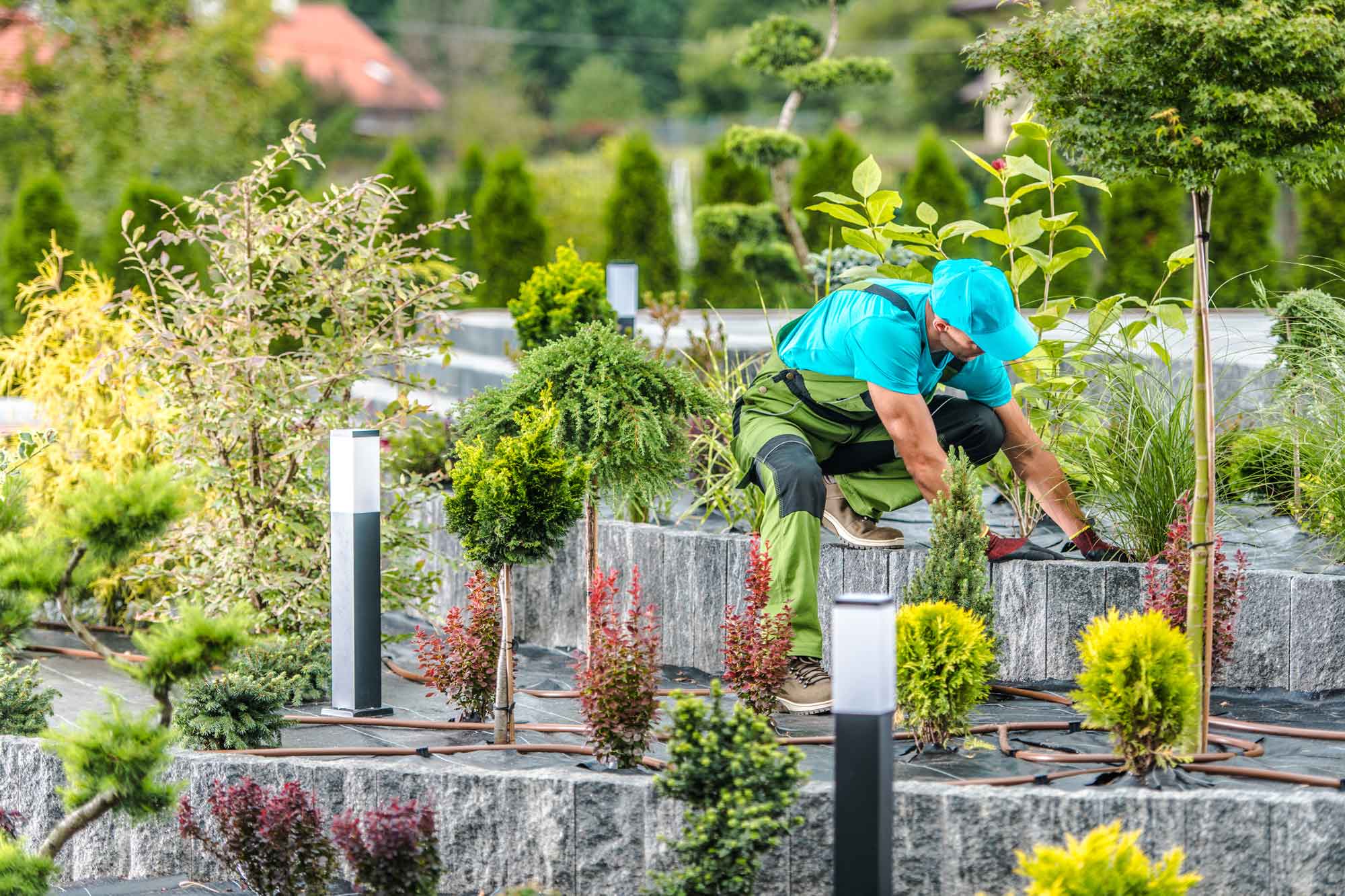Plants need to be exposed to the right amount of sunlight, water, and nutrients to grow properly. Unfortunately, Mother Nature doesn’t always provide these factors on time in Denver. Our semi-arid climate means homeowners need to be diligent about sustainable landscaping practices like reduced water usage and picking low-maintenance plants for their landscaping. Let’s look at some of the ways you can incorporate sustainable landscaping practices in your yard.
Core Principles of Sustainable Landscaping
Sustainable landscaping involves thoughtfully designing your landscape with your local climate and soil conditions in mind. Here, in the Denver area, we recommend Xeriscaping, a landscaping practice that focuses on planting drought-tolerant and native plants that will help you conserve water and reduce the need for mowing the lawn. The seven principles of Xeriscaping are:
- Plan and design your landscaping
- Prepare and amend the soil
- Select drought-tolerant and/or native plants
- Reduce the amount of grass
- Water efficiently
- Mulch
- Perform maintenance when needed
By creating a Xeriscape, you can design a space that’s attractive, low-maintenance, and eco-friendly.
Xeriscaping also helps to conserve water usage, which is especially important in Colorado. Homeowners can add additional water conservation techniques and practices to cut down on costs by using:
- • Rain barrels
- • Cisterns
- • Efficient irrigation systems
It’s also wise to think about when you water your plants each day and how often. Early evening or morning is best so that water has a chance to soak into the soil before it evaporates in the sun.
Plant Selection for Denver
Native plants are always the best choice for your landscape, no matter where you live. These plants have adapted to our climate and soil conditions, making it easier to keep them happy in your yard, and they’ll attract pollinators nearby. If you want more information about native plants, check out the Denver Botanic Gardens Plant Select® program.
Drought-tolerant plants do best in our semi-arid climate. Examples of drought-tolerant plants that are perfect for your Denver landscape include:
- • Angelina Stonecrop
- • Apache Sunset Hyssop
- • Blue Avena Grass
- • Big Bluestem Grass
- • Chocolate Flower
- • Deep Red Oriental Poppy
- • Fringed Sage
- • Rocky Mountain Penstemon
- • Santa Fe Aster
- • Yellow Columbine
Another trick to keeping water usage at a minimum is to group plants together that have similar watering needs. That way, you can soak the plants that need it most more often, while allowing others to rest in between waterings.
Additional Sustainable Practices
Mulch serves many purposes in home landscaping. It’s aesthetically pleasing, but it’s also incredibly beneficial for your plants. Mulch adds a protective layer near a plant’s vulnerable roots, keeping temperatures even during hot summer days and chilly spring nights. It also helps to retain moisture so that roots have a chance to soak up rainwater before it’s gone. Over time, mulch breaks down, allowing nutrients to leech into the soil and feed the plants.
Organic mulches like wood chips, bark, pine needles, shredded bar, and even lawn clippings can protect your plants and provide the nutrients they need to grow healthy and strong.
Ready to Create a Sustainable Landscape? Call American Arbor Care Today
Sustainable landscaping looks great, protects the environment, and is relatively easier to maintain than other landscaping practices. By selecting native plants that are drought-tolerant to create a Xeriscaping solution, it’s much easier to help them thrive. Experienced arborists and landscapers have the knowledge and tools to help you plan a landscape that’s set up for success. If you’re ready to create a sustainable landscape, reach out to your local arborists at American Arbor Care. We’ll help you design the perfect Xeriscape for your yard that adds curb appeal and is easy to maintain. Contact us today to get started!

